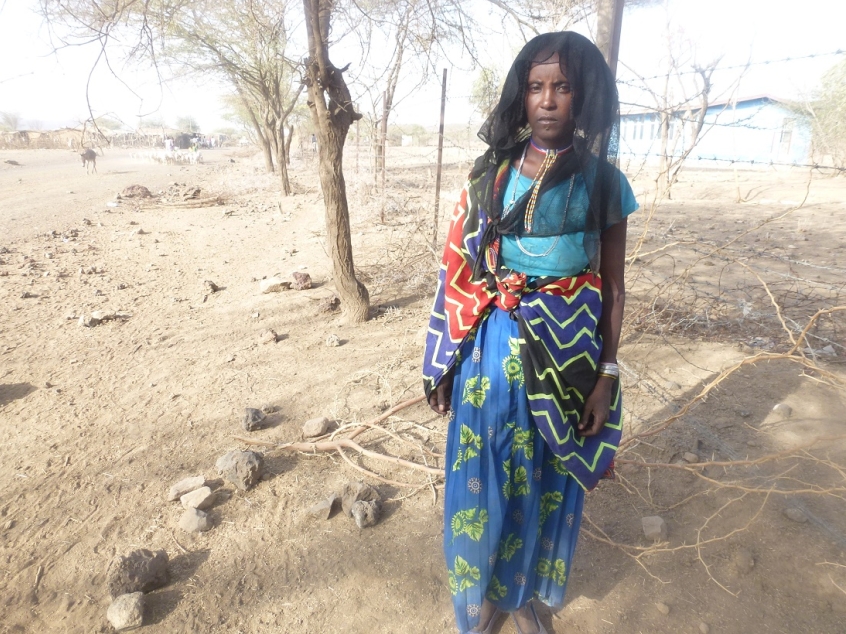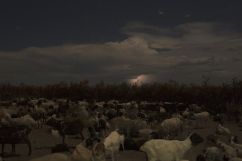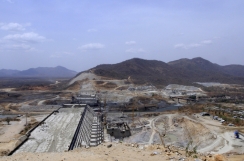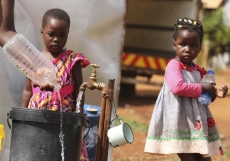Ten million people are in severe need of food in Ethiopia, as the country faces its worst drought in 50 years.
This number is likely to rise to 15 million people in a few months time, almost double the population of London, according to Donald Mavunduse, Tearfund's head of East and Southern Africa.

The situation has been developing since October 2015, and aid agencies and the nation's government have come up with a plan, but they have only managed to get five per cent of the funding needed to implement it.
Christian Today reported the situation in January this year, but Ethiopia has remained largely out of the headlines.
The situation developed when the strongest El Niño in decades struck the country, which was already suffering from a drought, limiting the rainfall that usually comes between October and November.
El Niño is a weather system that typically increases rainfall in California and southern US states and causes drought in other areas, including eastern and southern Africa. In Ethiopia, the lack of rain led to a failed harvest, destroying the agriculture on which 80 per cent of the population rely.

"At the moment 10 million people urgently need food aid, and this number is growing, as each day, further households exhaust their stores," Mavunduse told Christian Today.
"At the same time, households have coping mechanisms for crises such as this, which are understandable, but often destructive, and can escalate the number further. These include eating fewer meals, withdrawing children from school, because of fees, not accessing medical treatment, selling farming implements or burning trees for charcoal production. At the moment the Ethiopian government and NGOs are working tirelessly, but are only able to support a proportion of those in need. If we can meet the immediate humanitarian needs and address some of the negative coping mechanisms then we will both save lives and speed up the recovery."
Shege Roba Fantalle, 30, is a farmer. Speaking to Tearfund, she described how life had become "bitter" during the drought.
"We were hoping for things to improve. What we are eating now is dry, the water we drink is salty, and livestock are also affected. So far 30 of my goats and 40 of my sheep died because of the drought," she said.
"Those that are alive are just lying down at home as there is nothing to feed them with. Please help us. We are very grateful for what we are receiving; please continue to stand with us. We would have lost all hope had we not received food aid."
There is real fear that this crisis will have both a catastrophic human cost in the short term, and a longer term negative impact on development, reversing the progress Ethiopia has made in recent years.
The Ethiopian government has invested significantly in improved early warning systems and infrastructure, but the combination of environmental factors have overwhelmed the systems in place.
The crisis brings back memories of the country's 1983-85 famine, which left an estimated 400,000 people dead.
It's not inevitable that history repeats itself, however, Ethiopia's government has collaborated with the UN and other aid agencies to develop a comprehensive document that lays out a plan to tackle the situation. The problem is, without the necessary funds – $1.4 billion in total – the scheme can't be implemented, and Ethiopia faces a downwards spiral.
The United Nations' have launched a 90-day "Act Now. Protect Tomorrow" campaign urging nations and organisations to give.
Currently, the Ethiopian government and the international community have pledged US$758 million.
"We are looking at loss of life on a large scale if we do not respond adequately," said Mavunduse. "The millions who survive are also at risk of malnutrition, poor health, and lost education. Additionally, if households lose their livelihoods, then development gains made in the past will be eroded and the recovery after the drought will take even longer."
















